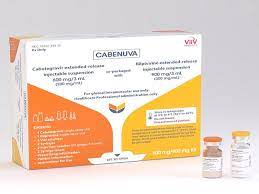Pfizer, Inc. (NYSE: PFE), a stalwart in the healthcare sector, continues to attract investor attention with its compelling dividend yield and a projected upside. Operating in the drug manufacturing industry, Pfizer boasts a substantial market capitalization of $141.46 billion, reflecting its significant footprint in the biopharmaceutical landscape.
Currently trading at $24.88, Pfizer’s stock price hovers close to its 52-week low of $21.59, yet well below the high of $30.19. This positioning offers potential investors an intriguing entry point given the stock’s average target price of $28.86 as per analyst consensus, indicating a potential upside of approximately 15.99%.
One of the standout features for income-focused investors is Pfizer’s impressive 6.91% dividend yield. Despite the high payout ratio of 89.95%, the company’s robust free cash flow of over $16 billion underscores its capability to maintain these dividend payments, making it an attractive option for those seeking regular income alongside capital appreciation.
Pfizer’s operational performance is further highlighted by a 10.30% revenue growth, coupled with a solid return on equity of 12.17%. However, certain valuation metrics like the trailing P/E ratio and PEG ratio are absent, prompting investors to rely on its forward P/E of 7.89 for gauging future earnings potential. The absence of these valuation metrics can sometimes be a red flag, but Pfizer’s consistent revenue growth and strategic positioning in the market provide a cushion against such uncertainties.
The technical indicators offer a mixed picture, with the 50-day and 200-day moving averages closely aligned at $24.81 and $24.92, respectively. The relative strength index (RSI) at 45.43 suggests a neutral position, while the MACD and signal line figures imply a cautious optimism in short-term momentum.
Pfizer’s portfolio spans a diverse range of therapeutic areas, from cardiovascular treatments and vaccines to innovative mRNA products like Comirnaty and Paxlovid for COVID-19. This diversity not only enhances revenue streams but also positions the company to leverage future growth opportunities in unmet medical needs and emerging therapeutic areas.
The company’s collaborations with entities such as Bristol-Myers Squibb and BioNTech highlight its strategic approach to innovation and market expansion. These partnerships are crucial in maintaining a competitive edge and driving long-term growth.
Analyst sentiment towards Pfizer is predominantly cautious, with 8 buy ratings, 14 hold ratings, and 1 sell rating. This balanced outlook reflects both the potential rewards and the risks associated with investing in Pfizer, particularly in light of the evolving healthcare landscape and competitive pressures.
As Pfizer continues to navigate the complexities of the biopharmaceutical industry, its blend of a stable dividend, growth potential in revenue, and strategic collaborations makes it a compelling consideration for investors looking to diversify their portfolios with a focus on healthcare.








































